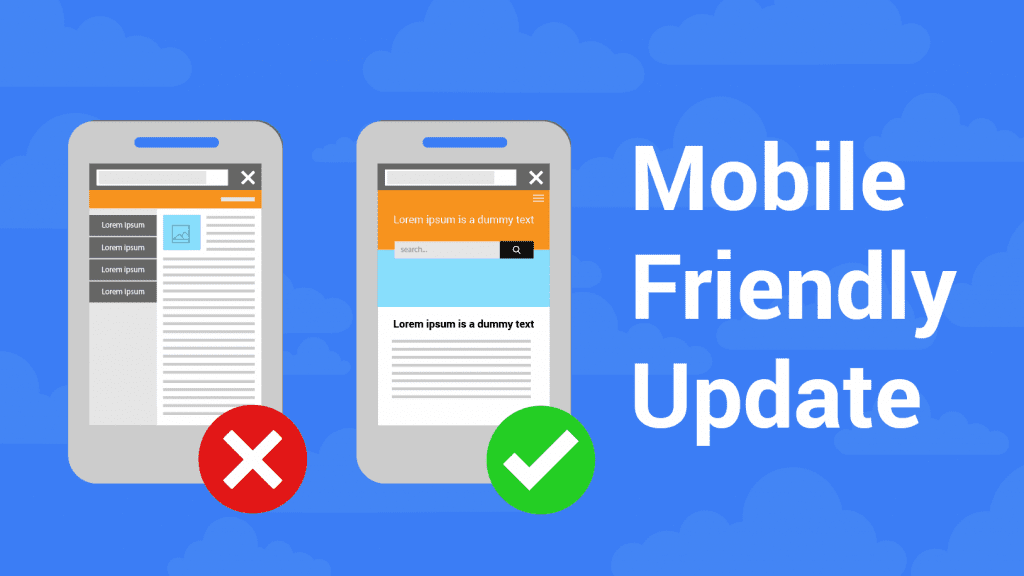Responsive design is considered essential in web design in 2022. However, if you’re not a designer, you might be wondering exactly what this term means and why it’s so important. You may also be unsure if you’re business’s website should be implementing responsive design. Read on to find out more about responsive web design and how it can benefit your business long-term.
What is responsive web design?
Responsive design is a technique used by web designers to make pages render well on devices with different screen sizes. Elements and content are automatically scaled to match the screens on which they are viewed. This means that the images are the right size for the screen width. Mobile users also don’t need to do extra work to find and read your content.

Responsive design provides a better user experience for visitors since they don’t need to resize, scroll, zoom, or pan, as they often need to do with websites that aren’t optimized for different devices. Websites that aren’t responsive in design are difficult to navigate and may lead to potential customers being left out of frustration.
Of course, implementing responsive design also means there’s no need to design another mobile website specially for smartphone users. Instead of designing separate sites for different screen sizes, you can design a single website that can scale up or down automatically to suit the device it’s being on.
Why responsive design matters
If you’re new to web design, you may be wondering why responsive design matters. Fortunately, the answer is quite simple. In a world where mobile web traffic now makes up the majority of website traffic, it’s vital that web design looks good on both computer and mobile screens. Websites now need to be easily viewable on various different devices.
There are now more mobile viewers than desktop viewers, with the numbers set to rise further as more people around the world gain access to smartphones. In 2014, only 22% turned to their phones first to browse the internet. However, fast-forward five years and this figure climbs to 52.6%. This represents a 68.8% increase. When more than half of your prospective visitors are using a mobile device to go online, you can’t simply serve them a web page designed for desktops. This could lead to a poor user experience, deterring users from visiting your site again.
Create a positive perception of your brand
Since responsive design improves the user experience, this translates into a positive perception of your business. If a customer is able to use your website easily on their chosen platform, they’ll be more likely to return in the future. This means your website is likely to benefit from a higher conversion rate.
Comparatively, if someone visits your site on a mobile device and it takes a long time to load or your images don’t display properly, your company can appear unprofessional. Obviously, no-one wants to do business with a company that’s unprofessional. Since responsive design offers a much better user experience, it will create a better impression of your business and can encourage people to give your company a chance.
Google prefers responsive web design
With Google officially stating that responsive web design is their preferred choice for websites, businesses are increasingly choosing to implement it when optimizing their websites for search. Responsive web design is now considered a major ranking factor, and can therefore lead to higher search rankings on Google.

Google recommends that “webmasters follow the industry best practice of using web design, namely serving the same HTML for all devices, using media queries to decide rendering on each device.”
Whilst it’s true that mobile websites and adaptive designs support mobile devices, Google opts for responsive web design for internet browsing. The reasons for this are similar to what we have discussed in this article. Not only do responsive designs cater to the growing number of global mobile users and offer a better user experience, but they also usually look more aesthetically-pleasing and are easier to upkeep.
Another thing to consider is that Google owns Android – the leading mobile operating system worldwide. Therefore, it makes sense that they want to ensure that people enjoy a good experience browsing online on their mobile or tablet. It ensures that more people will use their devices for different things.
Google is cracking down on non-responsive websites, affecting the rankings of pages that are not mobile-friendly. This means that if your business doesn’t have a responsive website, many of your competitors will likely be ranked higher than you in search engine results. As a result, they will probably receive more business. If you’re not sure if your website is responsive or not, it makes sense to contact a web design agency that can carry out a full website review.








